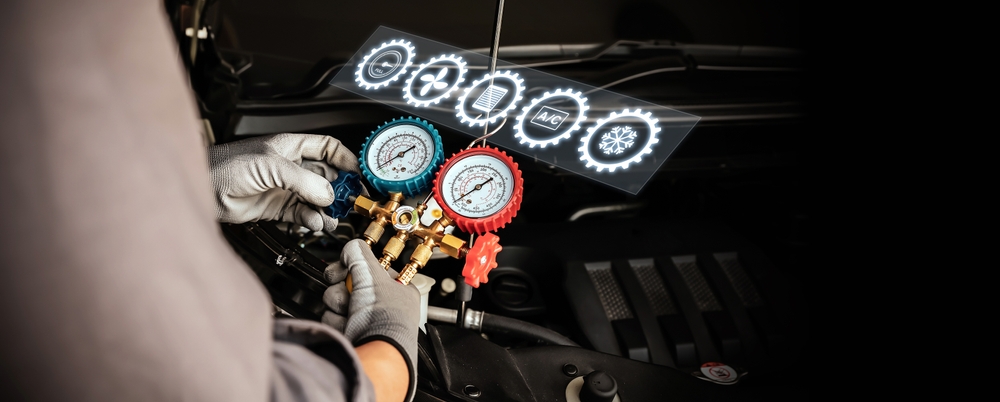Auto Mechanic Training: Launch Your Career Today
Gain the skills needed to become a successful automotive mechanic with hands-on training, certification options, and career pathways in dealerships, repair shops, and manufacturing. This guide covers programs, essential technical and soft skills, timelines, and job outlook for automotive technology careers—ideal for anyone seeking formal training or advancement in the auto industry.

Introduction: Automotive mechanic training lays the groundwork for a stable and rewarding career in the evolving auto industry. As vehicles incorporate more advanced electronics and software, trained technicians who combine practical repair skills with modern diagnostic knowledge are increasingly valuable. Training programs also often include courses on customer relations, workplace safety, and business basics to prepare students for the varied demands of the field. Program lengths vary from short certificate courses to multi-year degree programs.
Where to Get Automotive Mechanic Training: Prospective mechanics can choose from several training environments depending on goals and schedules. Technical and vocational schools, along with community colleges, are common choices — they blend classroom theory with hands-on labs and typically maintain well-equipped garages. These institutions frequently partner with local dealerships and independent shops to provide internships or co-op placements that give real-world experience.
Some high schools offer vocational automotive classes that introduce students to fundamental repair techniques and maintenance principles, giving interested teens a head start. For technicians already in the workforce, manufacturers, automakers, and dealerships often run ongoing training programs or certifications to keep staff current on brand-specific systems and repair procedures.
Key Skills for Automotive Mechanics: Successful mechanics need a mix of technical knowledge and interpersonal abilities: - Technical troubleshooting: Strong diagnostic and problem-solving skills are essential for pinpointing mechanical and electronic faults. - Attention to detail: Accurate repairs and maintenance are critical for vehicle safety and customer satisfaction. - Comfort with technology: Modern vehicles rely on computer-based diagnostic tools, sensors, and electronic control systems, so familiarity with software and digital interfaces is increasingly important. - Communication: Explaining technical issues clearly to customers and collaborating with colleagues improves service quality and workflow. - Physical capability: The job requires stamina, manual dexterity, and the ability to work in constrained or awkward positions.
How Long Training Takes: The time required depends on the credential sought and the level of depth: - Certificate programs: Often completed in 6 to 12 months, these focus on core repair skills and basic diagnostics. - Associate degrees: Typically require about two years of full-time study and cover broader theory plus extensive hands-on experience. - Bachelor’s programs: Some colleges offer four-year degrees in automotive technology or related fields for students seeking advanced training or management-track roles.
Training doesn’t stop after graduation. Mechanics must pursue continuing education and manufacturer-led instruction to keep pace with rapid technological changes and maintain certifications.
Career Paths After Training: Completing formal training opens many employment options across the automotive sector, such as: 1. Independent repair shops 2. Franchised car dealerships 3. Fleet maintenance units (for commercial or municipal fleets) 4. Specialty shops focused on transmissions, brakes, or other systems 5. Auto parts stores and service centers 6. Vehicle manufacturing and assembly plants
With experience and additional certifications, technicians can advance to lead technician roles, shop supervisor or manager positions, service advisors, or even start their own repair business. Other paths include specializing in diesel engines, hybrid/electric vehicle systems, performance tuning, or diagnostics.
Job Outlook and Demand: Overall employment projections for automotive service technicians and mechanics show limited change between 2021 and 2031, according to the U.S. Bureau of Labor Statistics. Despite modest growth, there is consistent turnover: roughly 67,200 openings for automotive service technicians and mechanics are projected each year on average over the decade. Many of these positions will emerge as current workers retire or move into other fields.
Technicians with postsecondary training or specialty certifications generally have stronger job prospects. Employers often prefer applicants who demonstrate formal education in automotive technology and up-to-date diagnostic skills, especially as vehicles become more electronically complex.
Conclusion: Automotive mechanic training is a practical investment for anyone aiming for a hands-on career in a technology-driven industry. Whether you pursue a short certificate or a multi-year degree, the combination of classroom learning, shop experience, and ongoing manufacturer training prepares you to diagnose and repair modern vehicles. With formal education, strong technical and communication skills, and a commitment to continuous learning, aspiring mechanics can build a stable, potentially lucrative career with opportunities for specialization and advancement.






